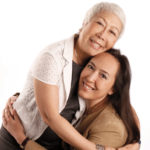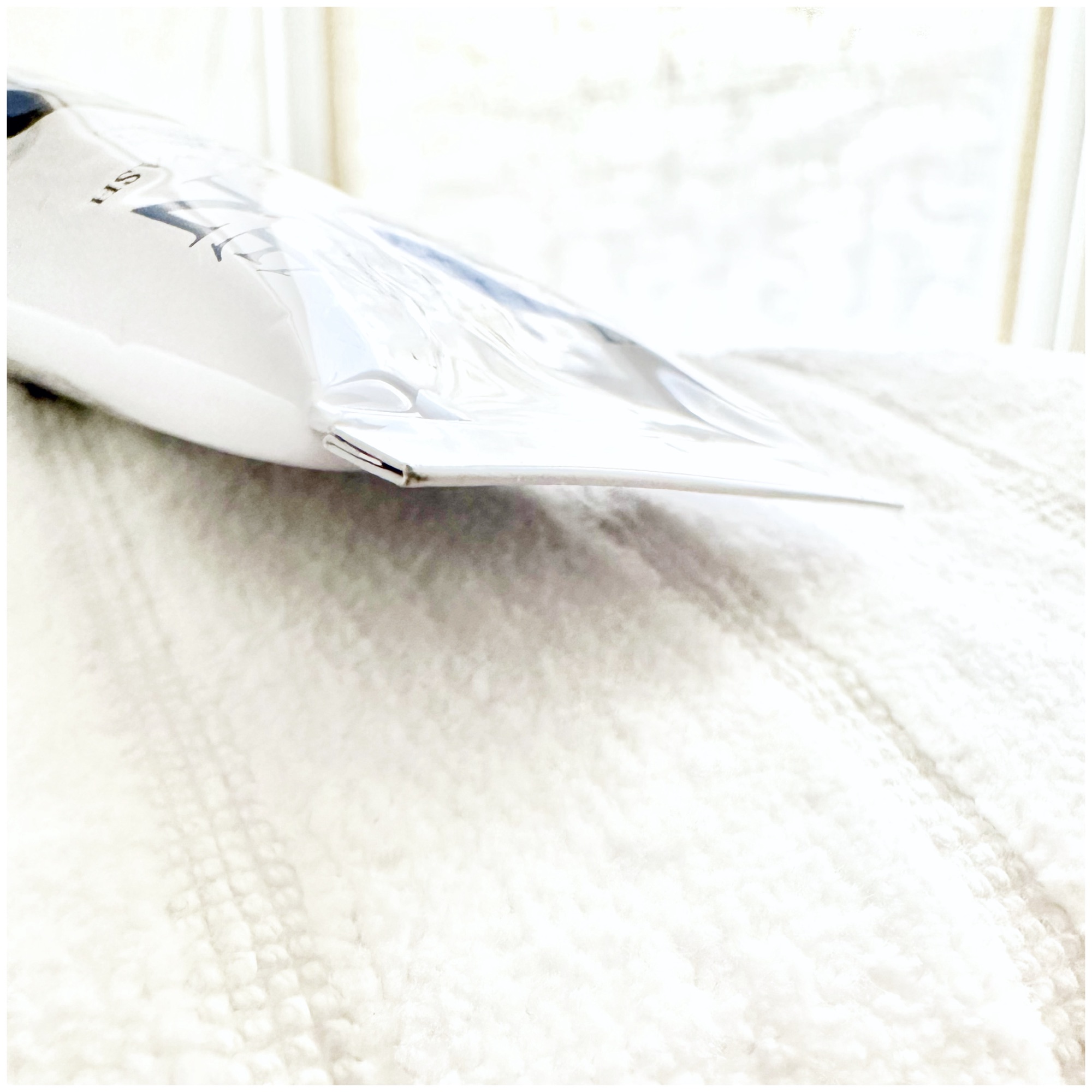Curly hair does require special care. While there are lots of great resources online for important daily maintenance and styling tips — using a silk pillowcase, air drying or using a microfiber towel or T-shirt, etc. — we thought we’d add some information from a dermatological and formulation angle and address one ingredient in particular that has been flagged as “bad” for curly hair: silicones.
Is Silicone “Bad” For Curly Hair?
Several curly hair bloggers recommend no silicones in hair products. The bad rating seems to be based on the idea that silicones are not water soluble and therefore build up in curly hair. This is stated to be a concern for curly hair in particular because, as it is not washed daily, the silicones become saturated and weigh down the hair’s natural curls. When this happens, one then needs a “clarifying” shampoo to fully wash away the silicone buildup, and clarifying shampoos are too drying for curly hair.
This assumes two things: 1) something false about silicones (which we tackle further below), and 2) something true about many clarifying shampoos (they can indeed be too drying for curly hair…but there is more to this as well).
Diving Into Silicones
1) Allergenicity: Silicones are not allergens. This is notable because silicones are everywhere. The risk of allergenicity increases significantly when an ingredient is very common. Nickel, for example, is the top contact allergen and part of the reason why is its ubiquity (it’s found in almost every metal). Despite silicones being widely used in many products, the reports of contact allergies to them are extremely rare, and they are not in published allergen lists (these lists are based on patch tests done on almost 30,000 individuals). Silicone’s hypoallergenciity is important for sensitive skins and scalps, and can help reduce stress on the hair shaft, which is fundamental to curly hair care.
2) Anti-Inflammatory: In addition to not being allergens, silicones are normally well tolerated. Peer-reviewed published medical literature shows that dimethicone-based anti-acne regimens significantly had less erythema and dryness and could be used as a counter-irritant in formulations known to cause erythema and irritation; dimethicone added to sunscreens resulted in less irritation in patients with rosacea who tend to experience more irritation to common topical preparations; and silicones do not show comedogenic or irritant properties. Silicones, therefore, also have several benefits for the skin and scalp, including helping to lessen inflammation.
3) Environmental Concerns: In the case of nanoparticles, the concern is the potential buildup of silicones within the body. Nanoparticles (and this is a concern not just for silicone but for any ingredient in nanoparticle form) are very small molecules and there is a debate about their ability to penetrate beyond the skin to potentially cause harm inside the body. While there is still no definitive study or conclusion, we at VMV Hypoallergenics have chosen not use nanoparticles in any of our formulations. We have made this decision partly because of this concern but also because of another basic rule of hypoallergenicity: the smaller the particle size, the more an ingredient penetrates the skin, and the higher the risk of an allergic reaction. The particle size of silicones (certainly the ones we use) are large at 60 microns. The particle size that is inhaled and gets into the lungs and vessels is <10 microns.
4) Silicones and curly hair: It is highly unlikely that silicones cause buildup. Silicones tend to evaporate quickly (almost as quickly as alcohol), making buildup unlikely. They seem beneficial for curly hair as they provide additional slide, making detangling less risky (preventing the risk of breakage). Possibly more damaging to curly hair are strong detergents and other harsh ingredients, allergens, and irritants that tend to dry out hair, e.g. fragrance, dyes, amido-amine sulfates (e.g. cocamide-dea, cocamidopropyl, etc.) parabens, and formaldehyde-releasing preservatives. These do tend to be present in clarifying shampoos…but not all. If you have curly hair and happen to need a clarifying shampoo because of another reason (like styling product buildup), there are options like Superwash that are allergen- and irritant-free, and that are non-drying.
In summary, because silicones evaporate almost as quickly as alcohol, it is unlikely that they’d build up in curly hair, even with infrequent shampooing…which also makes the need for a clarifying shampoo unlikely.
Dryness
Preventing dryness is fundamental to curly hair care. Dry hair is generally a result of physical injury to the hair shaft. Some common culprits include harsh shampoos such as some anti-dandruff shampoos; frequent hair color stripping and/or dyeing; or regular hair curling, heating or straightening treatments. Very gentle care is required to reduce the stress on stretched hair shafts (the same applies to broken cuticles).
A regularly prescribed technique by our founding dermatopathologist who cares for more extreme cases is:
- Apply plain petroleum jelly or The Big, Brave Boo-Boo Balm before shampooing to provide a barrier that protects breaks in the hair shaft.
- Shampoo hair with a very gentle shampoo such as Essence Clark Wash which is free of ingredients — such as dyes, fragrance, and preservatives — that can potentially break down hair.
- Use a rich but non-irritating conditioner and virgin coconut oil for repair.
For an at-home deep hydration treatment, try this:
- Shampoo and condition your hair. As much as possible, do not dry.
- While your hair is wet, comb Know-It-Oil or Oil’s Well virgin coconut oil through your hair and cling wrap it.
- Rinse after 30-60 minutes.
- Let air dry.
Read more about how hypoallergenic helps dry hair and dry scalp. And try this for a great (hypoallergenic) hair pomade!
 Laura is our “dew”-good CEO at VMV Hypoallergenics and eldest daughter of VMV’s founding dermatologist-dermatopathologist. She has two children, Madison and Gavin, and works at VMV with her sister CC and husband Juan Pablo (Madison and Gavin frequently volunteer their “usage testing” services). In addition to saving the world’s skin, Laura is passionate about health, inclusion, cultural theory, human rights, happiness, and spreading goodness (like a great cream!)
Laura is our “dew”-good CEO at VMV Hypoallergenics and eldest daughter of VMV’s founding dermatologist-dermatopathologist. She has two children, Madison and Gavin, and works at VMV with her sister CC and husband Juan Pablo (Madison and Gavin frequently volunteer their “usage testing” services). In addition to saving the world’s skin, Laura is passionate about health, inclusion, cultural theory, human rights, happiness, and spreading goodness (like a great cream!)






